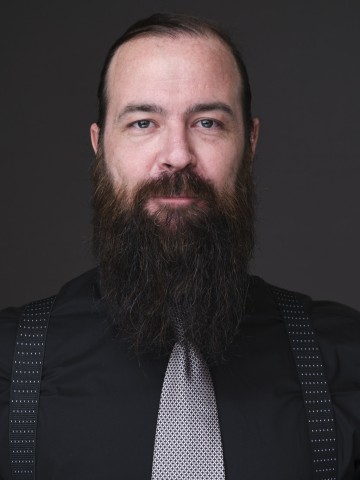
Levi Watts, Ph.D.
Department
Areas of Expertise
Biography
Dr. Levi Watts is a scholar of American politics and constitutional development, recently earning his Ph.D. in Political Science from Northeastern University in Boston under the direction of Professor Michael Tolley. His research focuses on the intersection of state constitutions, judicial politics, and policy outcomes, particularly in the areas of education and reproductive rights. His dissertation, State Constitutional Development and State Policy Outcomes: Do Echoes of the Past Persist in the Area of Education and Reproductive Rights?, explores how state constitutional histories shape the trajectory of rights expansion. The study identifies a three-stage developmental process—constitutional inclusion, judicial interpretation, and legislative codification—that determines whether states expand or restrict rights. His future research plans include turning his dissertation into a book manuscript and expanding his analysis from six states to sixteen.
In addition to his research, Dr. Watts is a dedicated teacher with extensive experience in a wide variety of political science courses. At Northeastern University, he served as both a teaching assistant and instructor of record, teaching courses such as U.S. Constitutional Law, American Government, U.S. Congress, Political Thought, Judicial Process and Behavior, and Politics and the Mass Media. Now as a Visiting Assistant Professor at Claremont McKenna College, Dr. Watts is eager to bring this same level of energy, creativity, and rigor to the classroom. He is committed to cultivating critical thinking, helping students connect course concepts to real-world applications, and making challenging material accessible through collaborative learning. At CMC, he aims to build on the college’s tradition of close faculty-student mentorship and small seminar-style courses by fostering spaces where students are empowered to lead discussions, question assumptions, and take ownership of their learning.
Dr. Watts’s teaching philosophy centers on active learning and individualized mentorship. He incorporates structured debates, simulation exercises, and primary source analysis to inspire intellectual curiosity and equip students with strong analytical skills. He also designs assignments with opportunities for reflection and iterative improvement, providing detailed feedback that helps students grow as writers and critical thinkers. During the COVID-19 pandemic, Dr. Watts adapted his courses to online platforms, maintaining close contact with students through one-on-one virtual meetings. These experiences deepened his ability to communicate complex ideas effectively across diverse learning settings—an approach he now brings to the highly interactive, discussion-based classrooms at Claremont McKenna. His pedagogical research, published in leading journals such as Oxford International Studies Perspectives, continues to shape how he structures courses to close gaps in engagement and learning outcomes among different student groups. He has also been active beyond the classroom through his work with the Community Legal Information Center (CLIC) in Chico, California, where he helped connect students and community members to resources for legal advocacy and education.
A lifelong community advocate, Dr. Watts has been engaged in service from a young age, participating in initiatives that address educational disparities, civil rights, and youth development. Born and raised in the small town of St. Anthony, Idaho—a short distance from Yellowstone National Park—he developed an early appreciation for community and civic life that continues to inform his work today. He has worked as a tutor, coach, and mentor, and has been deeply involved in political activism. These experiences inform his teaching, motivating him to integrate discussions of structural inequality and civic engagement into his courses at Claremont McKenna. He believes that education should challenge students to think critically about the systems that shape society while also empowering them to enact change. His work with students is guided by the idea that the classroom can be both a space for rigorous intellectual inquiry and a launching point for meaningful participation in democratic life.
Dr. Watts is excited to bring this approach to his Visiting Assistant Professorship at Claremont McKenna, where close-knit faculty-student interactions are at the heart of the college’s mission. He is eager to contribute to CMC’s vibrant academic community, engaging with students both inside and outside the classroom to help them navigate the complexities of American politics and constitutional law. Beyond academia, Dr. Watts enjoys listening to vinyl records, attending baseball games (go Red Sox and Padres!), playing the guitar, tinkering with old cars and radios, and spending time with his cats Alzebub Marta, Sterling, and Eugene. By combining his scholarly expertise, student-centered teaching philosophy, and dedication to mentorship, Dr. Watts hopes to make lasting contributions to the students and community at Claremont McKenna College.
Teaching Interests
American Politics, Public Law, State Constitutional Development
Research Interests
Public Law, State Constitutional Development, The Courts, Americana, Pedagogy
Education
Ph.D., Northeastern University
M.A., B.A., A.A.
Research and Publications
Watts, Levi. "State Constitutional Development and State Policy Outcomes: Do Echoes of the Past Persist in the Area of Education and Reproductive Rights?." PhD diss., Northeastern University, 2024.
Watts, Levi, Darin R. Haerle, Ryan Patten, and Matt Thomas. "Outcomes of the Second-Year Student Success Program: Student Perceptions and Persistence." CRSDE Sourcebook. University of Oklahoma (2023).
Irish, Adam, Nicole Sherman, and Levi Watts. "Targaryen Thought Experiments: Do Science Fiction and Fantasy Examples Aid or Obfuscate Student Learning?." International Studies Perspectives (2022).
Irish, Adam, and Levi Watts. "Can 100 Students Debate One Another? Adapting the Nuclear Proliferation Debate for a Large Lecture Class." Journal of Higher Education Theory and Practice 21, no. 10 (2021): 23-35.
